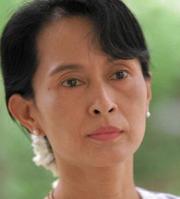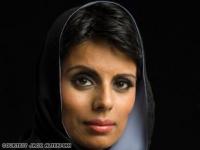Afghanistan's Bravest Woman
This video story from Al Jazeera and reported in Maktoob Business about Malalai Joya, an Afghan woman with major attitude:
This video story from Al Jazeera and reported in Maktoob Business about Malalai Joya, an Afghan woman with major attitude:
The first ever success of women candidates in a Kuwait election brought unexpected drama to the polls on May 16th.
The four women MPs are among
21 newcomers to the 50-seat National Assembly, with the high level of
churn appearing to reflect voter discontent with the obstructive
approach of parliament in recent times, which has led to repeated
dissolutions and three elections in as many years.
Four female members of parliament (MPs) managed to break an all-male political barrier and successfully upstaged opponents who forcefully campaigned against female participation.
That all four hold PhDs, have a formidable reputation for professionalism and now represent a proportion of the population that makes up more than 54% of eligible voters, points to a radical shift in opinion across Kuwait’s once stratified society.
 Myanmar opposition leader Aung San Suu Kyi will stand trial Monday
for an incident in which an American allegedly swam across a lake and
stayed for two days in her closely guarded residence, where she is
under house arrest.
Myanmar opposition leader Aung San Suu Kyi will stand trial Monday
for an incident in which an American allegedly swam across a lake and
stayed for two days in her closely guarded residence, where she is
under house arrest.
The southeast Asian country's military junta rarely allows visitors to see Suu Kyi, and foreigners are not allowed overnight stays in local households.
The government said the presence of the American, John William Yettaw, in the lakeside home violated the conditions of Suu Kyi's house arrest.
Suu Kyi on Thursday was taken to a prison compound near Yangon , where authorities set up a special room for her until the trial, said Nyan Win, spokesman for her National League for Democracy party.
If convicted, Suu Kyi could face three to five years in prison.
 CNN.com just published a comprehensive commentary by Dr. Qanta Ahmed in
response to the recent wife-slapping issue originally reported in Arab
News.
CNN.com just published a comprehensive commentary by Dr. Qanta Ahmed in
response to the recent wife-slapping issue originally reported in Arab
News.There is no basis in Islamic theology to support domestic abuse of any kind and specifically none pertaining to the matter of a wife's spending pattern.Read the full article here on CNN.com
The stark abasement of Islam that such a puritanical, backward-thinking judge would exact by issuing ridiculous decisions invites special scorn from the royal camp.
While the focus of the West remains on the pervasive abbaya in the kingdom or the longstanding restriction on women driving cars in the nation's cities, uninformed outsiders fail to realize that many, many women operate unhindered by these "restrictions."
In my time working in Saudi Arabia as an intensive care specialist, I came to learn that for most Saudi women, the abbaya is not a tool of oppression but rather one of liberation.
Let us also not forget 40 percent of the wealth in Saudi Arabia is owned and controlled by women, and these women are frequently business owners and oftentimes themselves employers.
Women are encouraged by Islam to maintain independent assets, assets over which men have no right or recourse even within the sanctity of marriage.
For experienced kingdom watchers, it is exciting to see the outcry against the violation of human rights come from inside the kingdom, not merely from without.
Women and progressive Saudi men who support them are not silenced. In fact, as observant Muslims, they are enjoined by Islam to expose any injustice, even and, in fact, especially when the infraction is committed by Muslims themselves.
This act of stupidity unfairly depicts the kingdom as draconian at a time when the tides of progressive reform are now waist-deep and rising. Such narrow perspectives only serve to fuel global Islamophobia that has greatly increased in the West post-9/11.
Muslims around the world and within the kingdom can no longer tolerate this stance, and the king, the Custodian of the Two Holy Sites of Islam, isn't likely to, either.